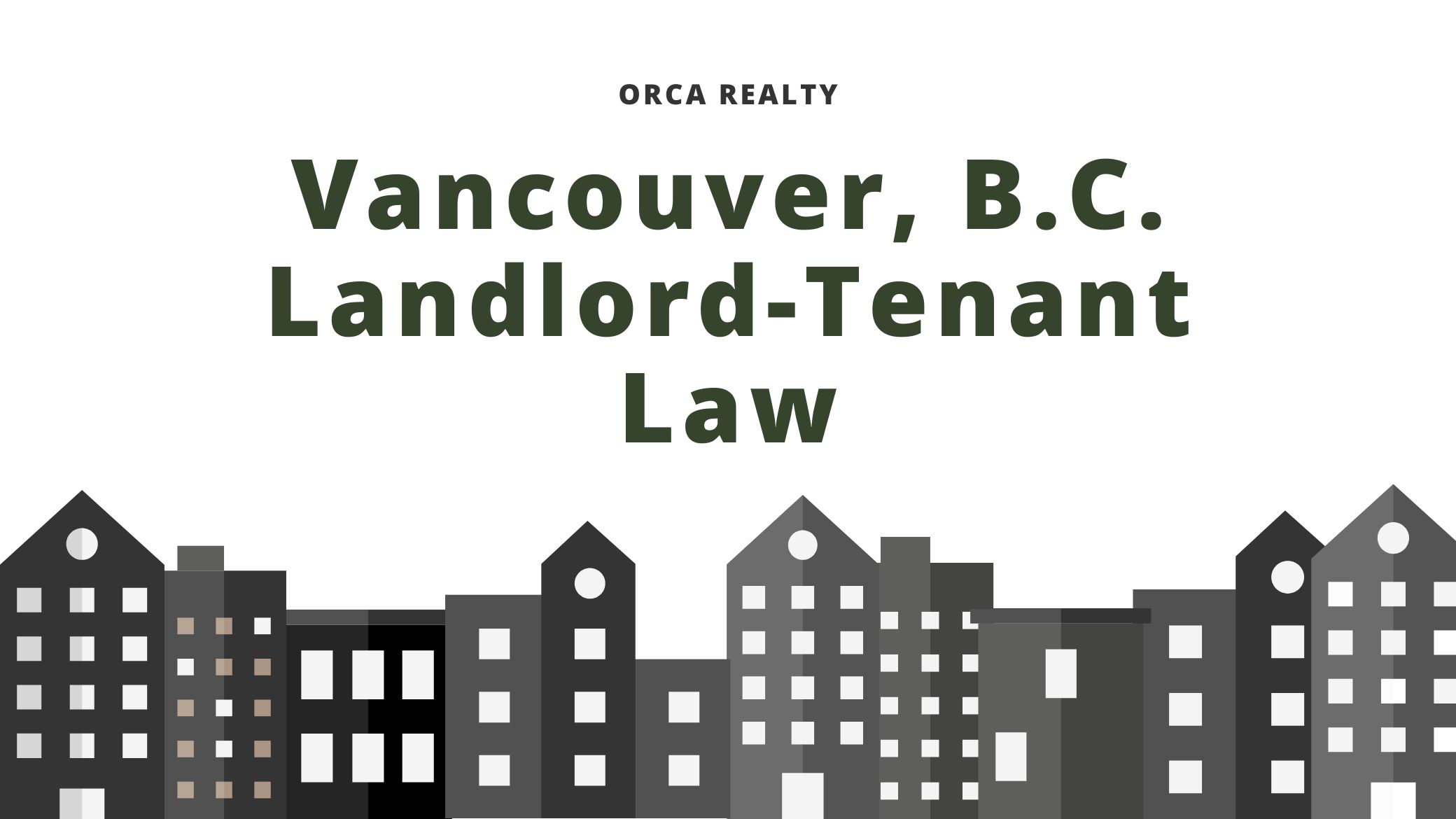The Residential Tenancy Act (RTA) governs most rental housing in British Columbia. Examples of such housing include single-family homes, condos, apartments, mobile homes, and shared accommodations.
The Residential Tenancy Act, however, doesn’t cover housing such as: short-term rentals, hotels, motels, retail stores, office buildings, and manufactured home parks.
In British Columbia, a tenancy agreement can begin in either of two ways. One, if tenants move into your rental. Or two, if the tenant pays you a security deposit. In both instances, a written tenancy agreement isn’t necessary between the landlord and tenant.
The tenancy agreement should include if it is a periodic tenancy or a fixed-term tenancy.
The Residential Tenancy Branch is the government agency tasked with the administration of the RTA. Among their key responsibilities is helping both the landlord and tenants resolve conflicts. The Residential Tenancy Branch acts as a neutral third party between a landlord and their tenants.
As a landlord in British Columbia, it’s important that you familiarize yourself with the RTA in order to understand your legal obligations with a tenancy agreement. In today’s blog, we’ll cover all the basics a landlord needs to know when having tenants.

British Columbia Tenant Rights & Responsibilities
The following are some of the rights tenants have in B.C. The right to:
- Peace, quiet, and privacy in their homes during the tenancy. Among other things in the residential tenancy act, this means that the tenant has a right to reasonable privacy, freedom from unreasonable disturbance, exclusive use of the property, and use of common areas. An example of a breach of quiet enjoyment would be things like landlord harassment or excessive smoke.
- Proper notification prior to a rent hike. To raise the rent on tenants in B.C., you must give the tenant a notice of at least 3 months. In addition, a landlord must wait for at least 12 months after the lease snd tenancy begins to do so.
- Be present during the move-in inspection to inspect the unit’s condition prior to the tenancy. The inspection must take place when the unit is empty. The purpose of the inspection is to document any pre-existing damage in the unit, such as water damage, scuff marks, and wall dents.
- Be provided with an emergency contact name and phone number. You must also deal with repairs within a reasonable time.
- Proper notice before landlord entry during the tenancy, as per the tenancy agreement. Landlords must provide the tenant with a notice of at least 24 hours prior to the intended entry of the tenant’s personal property.
- Have overnight guests. Tenants in British Columbia have a right to have overnight guests and choose who they can invite and stay at their rented properties.
- Break the lease and provide a notice to end the tenancy agreement for certain legally justified reasons, including when fleeing family violence and when requiring long-term care.

Equally, tenants in British Columbia have the following responsibilities under the RTA.
- Paying rent on time, every month until the end of the tenancy agreement for the rental unit.
- Maintaining the unit’s cleanliness standards in accordance with the lease agreement.
- Allowing landlord entry to the rental unit for legitimate reasons. Including, when collecting rent and in the event of an emergency.
- Abide by all terms of the tenancy agreement during the residential tenancy.
- Paying a security deposit if requested by the landlord.
- Not causing nuisance or disturbance to other tenants. Examples of things that can be considered nuisance include having too many guests, or making excessive noise.
- Give the landlord notice at least 60 days prior to moving out. This is considered a notice to end tenancy agreement.
If the tenant fails in any of these responsibilities, the landlord may be able to take certain actions. Such as, evicting the tenant or charging them for damages.
Landlord Rights & Responsibilities in British Columbia
The Residential Tenancy Laws gives landlords a number of rights during the residential tenancy. The landlord’s rights include:
- Collect rent payment whenever it is due and have tenants pay rent on time.
- Enter the rental unit for reasonable purposes, such as to make repairs or to serve the tenant with a document.
- Charge a pet damage deposit for the rental unit. A pet damage deposit is separate from a security deposit.
- Request a security deposit up to one month’s rent for the residential tenancy.
- Evict the tenant using a written notice for violating the terms of the lease agreement, such as unpaid rent. This includes not renewing a fixed-term tenancy.
- Raise rent, subject to certain restrictions during a fixed-term tenancy or any as per tenancy agreements
If the tenant violates any of these rights or violates any tenancy agreements, landlords can file a complaint with the Residential Tenancy Branch. The agency will conduct investigations and make a decision, which may include eviction of the tenant from the rental unit or compensation for any violations of the tenancy agreement.

A landlord’s responsibilities include:
- Create and provide the tenant with a written lease agreement. The agreement must include things like the length of the tenancy, rent amount, and certain standard terms.
- Ensure the rental unit is in a good state of repair with a condition inspection report, and that it meets the local health and safety codes.
- Notify the tenant before entry. Specifically, you must provide the tenant with a notice of at least 24 hours prior to entering the tenant’s rental unit. It is recommended to provide a written notice.
- Treat any current, former or prospective tenant fairly and not discriminate against them on the basis of their race, color, sex, income source, family status, marital status, disability, or religion.
- Return all of the tenant’s deposit plus interest within 15 days unless the tenant agrees in writing that you can keep a portion of the deposit.
An Overview of the Landlord-Tenant Laws in British Columbia
1. Landlord Entry
Landlords have a right to enter the tenant’s rented unit. However, to do so, landlords must keep in mind a couple of essential things. For one, landlords must provide the tenant with proper notification. That is, a notice of at least 24 hours prior to entering their rented unit.
And two, landlords must have a legitimate reason for the entry. Examples include: to inspect the unit, to complete repairs or maintenance, or to show the unit to prospective buyers or tenants.

2. Security Deposits
As a B.C. landlord, you have a right to ask for a security deposit from tenants at the start of a tenancy. Although, it must not exceed the equivalent of half of the first month’s rent.
Landlords must also return the deposit plus any interest to the tenant within 15 days.
3. Tenant Eviction
The RTA gives landlords the right to evict tenants in certain circumstances. Such circumstances include nonpayment of rent, unpaid utilities, or when carrying out extensive renovations or repairs.
And to evict the tenant for any of those reasons, a landlord must first obtain a writ of possession from the Supreme Court of B.C. The court bailiff will then remove the tenant and their belongings and change the locks for the landlord.
Bottom Line
Understanding the RTA is key to running a successful rental investment as a landlord in British Columbia. If you have a question or need expert help in managing your rental property, then look no further than Orca Realty. We are a full-service property management company that you can trust to handle all your management needs. Get in touch to learn more!
Disclaimer: Please note that the information provided in this blog is intended for general guidance and should not be considered as a replacement for professional legal advice. It is important to be aware that laws pertaining to property management may change, rendering this information outdated by the time you read it.




